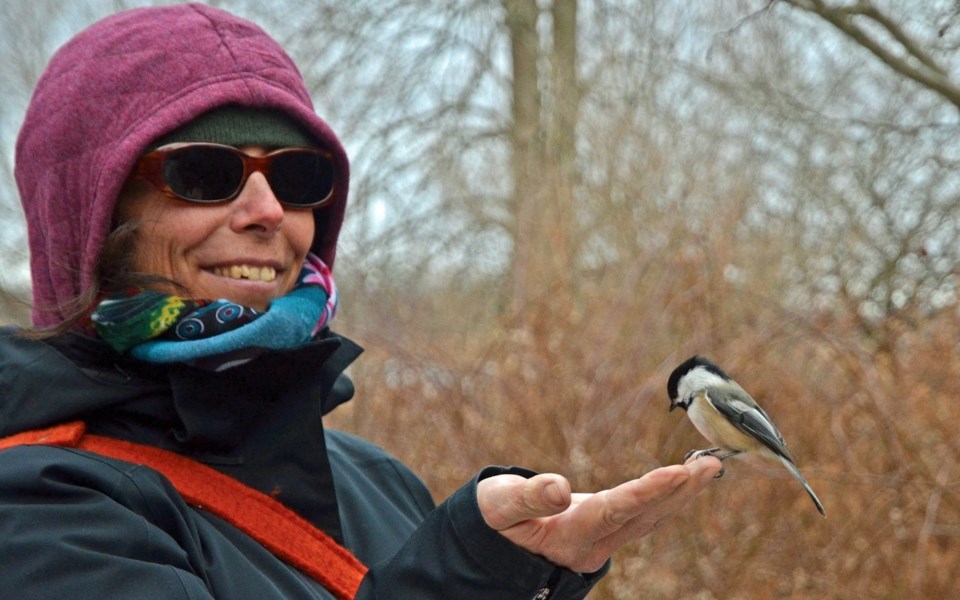After years of leading Whistler Museum’s Discover Nature interpretation program at Lost Lake, local biologist and educator Kristina Swerhun is launching a Whistler Nature 101 & Interpretation course to the public.
The three-day training, hosted at HI Whistler at 1035 Legacy Way from May 28 to 30, is designed to introduce participants to Whistler’s natural environment while developing their skills as effective communicators of ecological information.
“It’s nature and communication, which are both so important,” said Swerhun. “People can only protect what they care about—and to care, you first have to understand.”
Swerhun originally created the course after arriving in Whistler as a tour guide with little background in local ecology. “It was all first aid and logistics,” she said. “A lot of small companies don’t have the resources for training. This is meant to fill that gap.”
Structured across three full days, the course combines classroom-based learning, interpretation theory, and guided fieldwork. The first day focuses on Whistler-specific biodiversity and geology. On the second day, participants will explore interpretation methods—the art and science of communicating nature—before heading into the field on the third day to practise those skills in real time.
“What makes this different is that it’s hands-on,” said Swerhun. “I’ve spent more than 30 years volunteering and learning from citizen scientists and researchers in Whistler, and I want to share that knowledge.”
Swerhun is hoping to attract a mix of participants, including head guides or trainers from tour companies, non-profit staff, and lifelong learners.
A key part of the training focuses on interpretation techniques, which Swerhun said are vital for engaging people with nature. A framework she uses to teach is called POETRY, which stands interpretation has a Purpose, is Organized, Enjoyable,Thematic, Relevant, & You make a difference. The goal, she said, is to help people go beyond facts and connect to bigger questions that affect everyone—such as how ecosystems function, why they matter to human survival and what people can do to protect them.
Interpretation, she explained, is widely used in professions from zoos to museums and is equally valuable in everyday life.
Swerhun said one fact that often surprises trainees is just how biodiverse Whistler is. “When bioblitz scientists came here, they didn’t expect to find much,” she said. “But the topography and the transition between coastal and interior zones blew them away.”
That natural richness, she added, is an entry point to sustainability.
“There’s a continuum: understanding leads to appreciation, which leads to protection,” she said. “That’s stewardship.”
While participants may not leave the training as full-fledged naturalists, Swerhun hopes they leave with a renewed sense of curiosity and confidence.
“It’s about inspiring people to keep learning. The more I learn, the more I want to learn and protect,” she said. “That sense of wonder is what I hope they take away.”
For those working in tourism or education, she added, the skills gained from the training can add immediate value. “Guests notice when someone knows their stuff and can tell a good story,” she said.
Businesses or organizations seeking specialized courses can also have her develop customized curriculum.
Registration for Whistler Nature 101 & Interpretation is now open and interested participants can contact Whistler Museum or Swerhun at [email protected].
May 23 is the last day to register.




